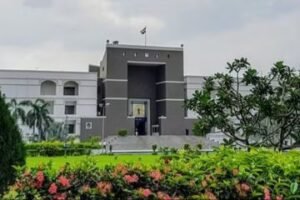Supreme Court: Secretly Recorded Telephonic Conversation of a Spouse Is Admissible Evidence in Matrimonial Cases
Table of Contents
- Case Snapshot
- Why the Recordings Are Admissible
- 1) Spousal Privilege Under Evidence Law and Its Exception
- 2) Privacy Is Not Absolute; Fair Trial Considerations
- 3) Electronic Evidence Requirements
- What the Ruling Changes
- The Legal Tests to Satisfy
- Key Observations from the Court
- Practical Guidance for Litigants and Counsel
- How This Fits with Earlier Jurisprudence
- Bottom Line
The Supreme Court of India has held that a spouse may rely on secretly recorded telephonic conversations with the other partner in matrimonial disputes, including divorce proceedings, subject to standard evidentiary safeguards for electronic records and relevance to issues in the case. The ruling, delivered in Vibhor Garg v. Neha on July 14, 2025, clarifies the interplay between spousal privilege, privacy, and the right to a fair trial, and resets the law on the admissibility of such recordings across family courts.
Case Snapshot
- Bench: Justices B.V. Nagarathna and Satish Chandra Sharma.
- Holding: Secretly recorded phone calls between spouses are admissible in matrimonial proceedings; they do not per se breach privacy sufficient to bar admissibility when the dispute is between the spouses themselves and the evidence meets electronic evidence requirements.
- Effect: Supreme Court set aside the Punjab & Haryana High Court’s order that had excluded such recordings on privacy grounds and restored the family court’s permission to exhibit the recordings.
Why the Recordings Are Admissible
1) Spousal Privilege Under Evidence Law and Its Exception
The Court explained that the privilege protecting confidential communications between spouses (formerly Section 122 of the Indian Evidence Act, now reflected in Section 121 of the Bharatiya Sakshya Adhiniyam, 2023) includes an express exception for proceedings between the spouses themselves. In matrimonial litigation, the bar on disclosure does not apply in the same way, permitting the use of such communications as evidence in suits between married persons. The Court also reasoned that while a spouse’s testimony is one route for disclosure, a recording device can function like an “eavesdropper,” and the privilege does not extend to exclude the communication itself when properly brought before the court under the statutory exception.
2) Privacy Is Not Absolute; Fair Trial Considerations
Addressing concerns under Article 21, the Court held that the right to privacy, though fundamental, is not absolute and must be balanced with the right to a fair trial in matrimonial proceedings. The Court emphasized that where a marriage has broken down to the point where spouses are recording each other, that is itself symptomatic of eroded trust and cannot automatically preclude courts from examining relevant evidence. Thus, privacy alone does not bar admissibility when the statutory framework and fair trial rights support receiving the material, subject to safeguards.
3) Electronic Evidence Requirements
The Court reiterated that electronic records—such as phone recordings stored on memory cards or CDs—are admissible if they comply with Sections 65A/65B principles (now mirrored in the new evidence statute), including appropriate certification and authenticity verification. The Court echoed the established three-fold test for such recordings: relevance to facts in issue; clear identification of speakers; and reliability/accuracy of the recording free from tampering, along with compliance with electronic evidence certification norms.
What the Ruling Changes
- It overturns the approach that treated secret spousal recordings as per se privacy violations that cannot be received by family courts, restoring the family court’s discretion to consider them where relevant and compliant with evidentiary law.
- It reconciles spousal privilege with its statutory exception for suits between spouses and aligns evidentiary rules with modern communication technology.
- It clarifies that the new Bharatiya Sakshya Adhiniyam preserves the exception permitting use of spousal communications in proceedings between spouses, ensuring continuity of principle under the updated law.i
The Legal Tests to Satisfy
Courts will typically examine:
- Relevance: Whether the conversation bears directly on pleaded issues such as cruelty, desertion, or conduct relevant to custody or maintenance.
- Identification: Reliable attribution of voices to the parties; corroboration through circumstances or expert input if disputed.
- Authenticity and Integrity: Absence of editing or tampering; chain of custody; and proper Section 65B certification where applicable.
- Fair Opportunity to Challenge: The opposing spouse must have a chance to test provenance and content, including cross-examination and possible expert scrutiny.
Key Observations from the Court
- “If the marriage has reached a stage where spouses are actively snooping on each other, that is in itself a symptom of a broken relationship and denotes a lack of trust between them.” The Court did not accept that this reality should bar courts from considering such communications when justice so requires in matrimonial litigation.
- Section 122’s (now Section 121’s) exception and the overarching right to a fair trial legitimize receipt of such evidence in disputes between spouses, provided electronic evidence norms are met.
- Excluding electronic records that meet statutory standards would be inconsistent with both evidence law and contemporary technological realities in domestic disputes.
Practical Guidance for Litigants and Counsel
- Ensure compliance with electronic evidence rules: submit Section 65B-compliant certificates (or their counterparts under the new statute) and preserve original media and metadata to defend authenticity.
- Anticipate challenges: be prepared to establish voice identification, recording conditions, and the chain of custody; consider expert assistance if authenticity is disputed.
- Respect scope and proportionality: rely on conversations that are directly relevant to pleaded issues to avoid unnecessary privacy intrusions that may be deemed disproportionate.
- Consider corroboration: courts are more likely to rely on recordings corroborated by other evidence (messages, emails, conduct) than on isolated statements.
How This Fits with Earlier Jurisprudence
Commentary notes that the Court’s approach builds on the classic admissibility test for taped conversations and integrates constitutional balancing between privacy and fair trial rights, moving away from categorical exclusions applied by some High Courts in the recent past. The judgment has been widely read as settling the law in favor of admissibility with safeguards rather than a blanket bar.
Bottom Line
Secretly recorded telephonic conversations between spouses are admissible as evidence in matrimonial disputes, provided they meet the requirements for electronic evidence and are relevant to the issues in the case. Spousal privilege does not bar such material in proceedings between spouses, and privacy concerns must be balanced against the right to a fair trial—not used as a per se exclusionary rule.
- Admissibility hinges on relevance, identification, authenticity, and compliance with electronic evidence certification norms.
- The ruling restores family courts’ ability to consider such communications responsibly, aligning evidentiary law with modern technological realities in domestic litigation.




